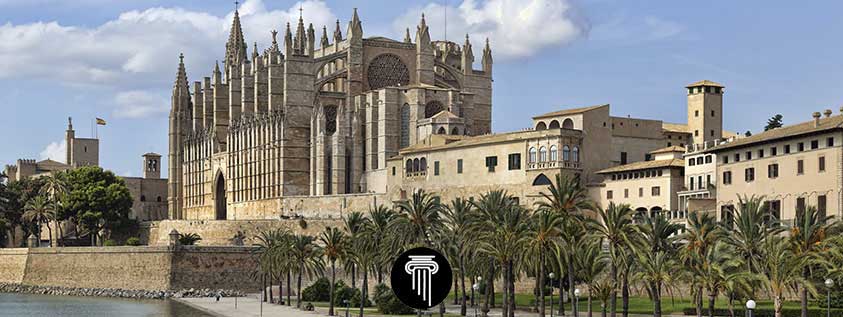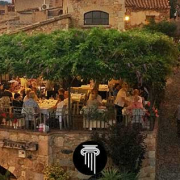Family life in Spain
Spain is a renowned tourist destination for its stunning beaches, delicious food, and vibrant culture. However, Spain is also an excellent place to raise a family. In recent years, the country has made great strides in providing families with access to quality education and child care.
In addition, Spanish families are very close-knit, with extended family members often living close by. This can be a big advantage for working parents who need extra support.
Whether you’re looking for a sunny place to raise your kids or hoping to learn more about Spanish culture, read this blog to learn more about Family life in Spain
Content
What are the family values in Spain?
Family is highly regarded in Spanish culture. It represents security, honesty, respect, and love. Spanish culture is widely known for its passionate and intense approach to life. This is also reflected in Spanish family values, which emphasize close relationships and strong emotional bonds. Family members often stay in close contact with one another, sharing both the good and the bad times.
There is also a strong focus on extended family, with grandparents often playing an important role in the lives of their grandchildren. In Spanish households, children are typically raised with a deep sense of respect for their elders. As a result, families in Spain typically have a close-knit and supportive structure.

How important are family relationships?
In Spain, family is important. Families are typically large and extended, with grandparents, cousins, aunts, and uncles often living close by. Children are considered a blessing, and families go out of their way to spend time together.
It’s not uncommon for families to have big Sunday lunches together or to gather for holidays and special occasions. Spanish families also tend to be very close-knit, with members often lending each other a helping hand. In fact, it’s not unusual for families to have a “home away from home” where they can go if they need help or just want some company. all in all, family is very important in Spain.
What are some Spanish family traditions?
Spanish families have many unique traditions and festivals that are celebrated throughout the year. Some of these traditions are religious in nature, while others are more cultural or family-oriented. Here are 10 of the most popular Spanish family traditions:
-
12 grapes
On New Year’s Eve, it is a tradition to eat 12 grapes at midnight. Each grape represents one month of the upcoming year, and eating all 12 is said to bring good luck. The whole family typically participates in this tradition.
-
El dia de Reyes
Epiphany, or Three Kings’ Day, is one of the most important days in the Spanish calendar. Families gather together to celebrate the arrival of the Three Kings in Bethlehem. A traditional meal of roast lamb is often served, and gifts are exchanged between loved ones.
-
Semana Santa
Holy Week is a time when Spain comes alive with processions and markets. Families often take part in religious ceremonies and eat traditional dishes such as codfish Stew and torrijas (fried bread soaked in syrup).
-
Fiesta de Mayo
Cinco de Mayo is a Mexican holiday that commemorates the victory of the Mexican army over the French at the Battle of Puebla. In Spain, it is also a day to celebrate regional traditions and culture, with folklore dancing and performances taking place across the country.
-
Día de la Madre
Mother’s Day is celebrated on May 10th in Spain. Families come together to show their appreciation for mothers and motherhood. Traditionally, children will pick wildflowers to give to their mothers, and special meals are often prepared as a way of showing gratitude.
-
San Juan Bautista
Saint John the Baptist’s Day is celebrated on June 24th with bonfires, feasts and balls being held in towns and villages across Spain. It is also customary for people to jump over the flames of bonfires as a way of guaranteeing good luck in the coming year.
-
La Tomatina
This quirky festival takes place in August in the town of Bunol near Valencia. Participants pelt each other with tomatoes in a giant food fight that lasts for around an hour! Afterward, everyone cleans up together and enjoys a magnificent paella feast.
-
La Virgen del Pilar
This public holiday on October 12th celebrates Spain’s patron saint, The Virgin Mary. Processions and pilgrimages take place across the country, and special foods such as churros con chocolate (fried dough sticks dipped in chocolate) are enjoyed by all.
-
Halloween
Although not originally a Spanish tradition, Halloween has become increasingly popular in recent years. Children dress up in costumes and go trick-or-treating around their neighborhood, while adults enjoy parties and gatherings with friends.
-
Navidad
Christmas is one of the most important holidays in Spain, with family gatherings and festive meals taking center stage. On Christmas Eve, it is traditional for families to attend Midnight Mass before enjoying a huge feast known as “La Cena de Nochebuena.”
Traditions help form family life in Spain
Spanish families, traditions are an important part of family life in Spain. They help to connect people to their history and culture, and they provide a sense of community. Traditions also give families a chance to spend time together and create lasting memories. Furthermore, they are important to Spanish families because they help to create a sense of identity and connection.
What is the average family size in Spain and
Spain is a large country with a population of over 46 million people. The average family size (couple) in Spain has 2 children. The high average family size in Spain is due to a number of factors, including the fact that Spain is a Catholic country and the Spanish government offers financial incentives and good social security for families to have more than two children.
In addition, Spain has a relatively young population, with the median age being just over 40 years old. This means that there are more families of childbearing age than in other countries with an older population. As a result, the average family size in Spain is likely to remain high in the future.
What are some common family structures in Spain?
Spain is a country with a diverse range of cultures and traditions. As a result, there is no one type of family structure that is considered “typical.” Instead, families can take a variety of different forms, depending on their unique circumstances.
The most common family structure is the couple, which includes two adults, which may be married or have children or not.
Another common family structure in Spain is the Extended Family. In these families, grandparents, parents, and children all live together under one roof. This arrangement provides support and security for all members of the family and helps to instill strong family values and help with raising children.
Another common family structure in Spain is the Single-Parent Family. In these families, the child or children live with only one parent, typically the mother. This arrangement often arises due to divorce or the death of a spouse. Single-parent families can face challenges, but they also provide opportunities for children to develop close bonds with their parents. No matter what form they take, families in Spain play a vital role in society.
Unique challenges that family life in Spain has
Spanish families face a number of challenges. One of the most significant is the high cost of living. This is especially true in major cities like Madrid and Barcelona, where the cost of housing, food, and other essentials is sky-high. Another challenge is the high unemployment rate, which currently stands at around 17%. This means that many families are struggling to make ends meet.
Additionally, families with young children often find it difficult to juggle work and childcare commitments. And finally, families often have to deal with the pressures of extended family members who may be critical or judgmental.

Support of the Spanish government for families
The Spanish government offers a number of programs and services to support families. One important program includes child benefits (Prestación por hijo a cargo) which provides financial assistance to families with children under the age of 18. The amount of benefit is based on the number of children in the family, and it is paid out on a monthly basis.
Families can also receive help with childcare expenses, as well as housing subsidies and grants for home repairs. In addition, the government offers free or reduced-cost health care and education for children. By offering these various forms of support, the government ensures that families are able to provide their children with a good quality of life.
Disclaimer: Information on this page may be incomplete or outdated. Under no circumstances should the information listed be considered professional legal or financial advice. We highly recommend seeking guidance from a legal or financial expert if you lack extensive knowledge or experience dealing with any of the procedures outlined in these articles.







